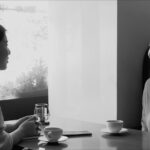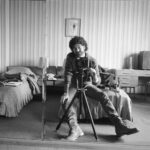The Lindner Congress Hotel looms large over Cottbus, deep in the heart of Lusatia. It is probably the tallest building in the city. I am staying on the 13th floor. Unlucky for some, but it gives me deep and magnificent views, from traditionally German pastel-coloured apartment blocks to gloomier communist-era high-rises to the tops of factories and churches. In the distance, a mere half an hour’s drive away, the Polish border.
I’ve been to Cottbus before. Two years ago. It is home to the Sorbian people, the only Slavic ethnic group indigenous to Germany, making it the perfect location for a festival dedicated to Central and Eastern European cinema. I was very curious to learn more about this people group. But when I typed Sorbian-related queries into Google, I was unhelpfully met with “Did you mean Serbian?” in the replies (now it appears to be fixed).
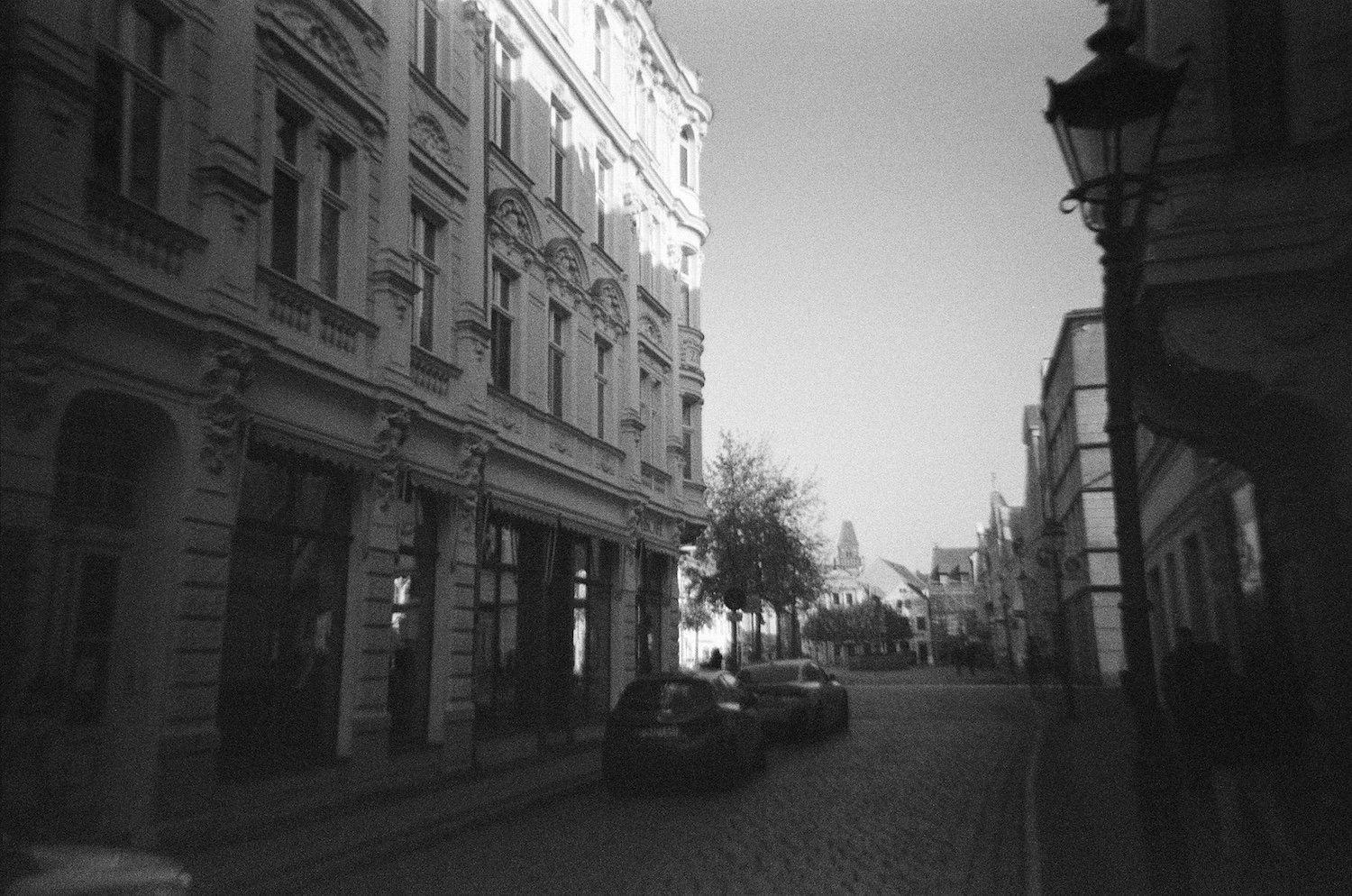
According to a little bit of research, this isn’t entirely incorrect. The ancient land of White Serbia corresponds roughly to these parts, stretching into nearby Bohemia. This is where the Serbs themselves may have migrated from in the first half of the 7th century, led by a prince called the Unknown Archon, thus giving Serbs and Sorbs a unique connection that spans well over a millennia.
The displacement and dispersal of peoples, whether due to economic opportunity, war, family issues or oppression, as well as a lopsided focus on Serbia itself, characterises my first day at Cottbus. All three Competition films took place in the gorgeous Art Nouveau-style Weltspiegel Kino, built in 1911, which has a comfy yet low-key majestic feel.
Director Filip Peruzović went one step further in his adulation. Upon introducing his excellent Croatian film Good Children (2024), he called it one of the best places in the world to watch cinema. He said this twice, actually. Someone shouted “Lauter” (louder), forcing him to speak up for those heard-of-hearing in the back.
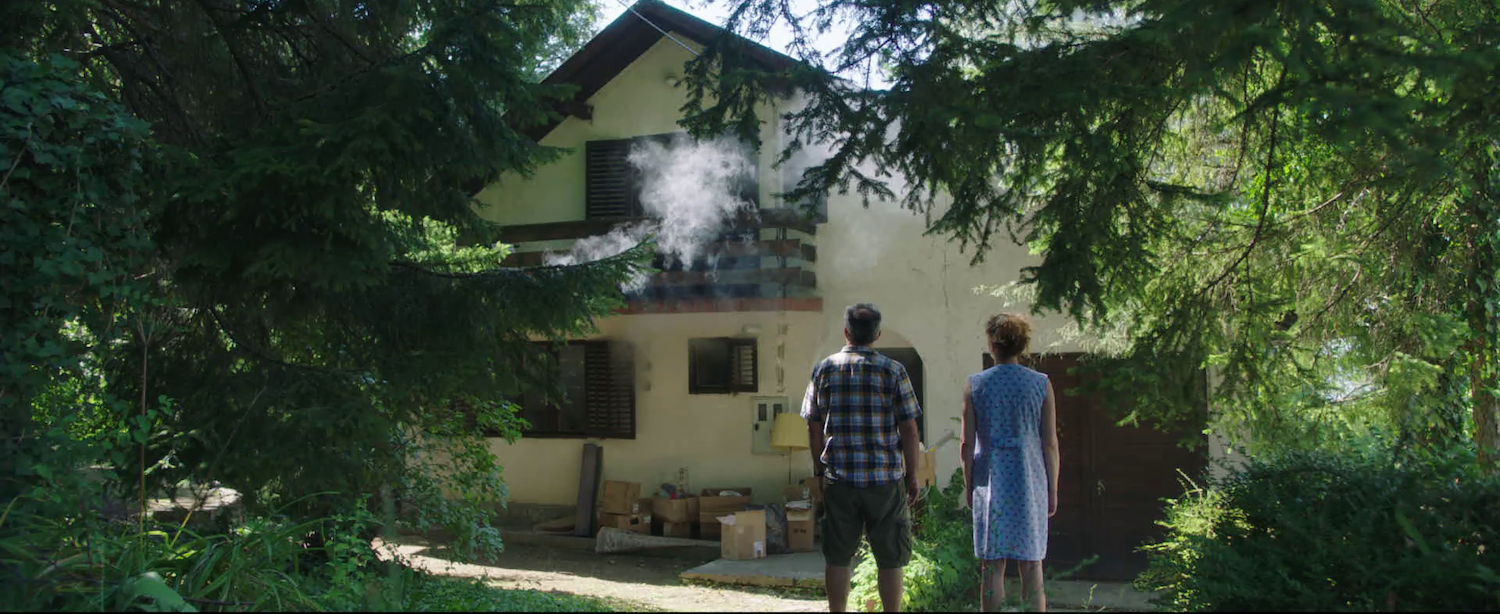
Home is Full of Crap
“Home is so sad. It stays as it was left,
Shaped to the comfort of the last to go
As if to win them back.”
Philip Larkin’s 1958 poem “Home is So Sad” stayed in the back of my mind throughout the beginning of Peruzović’s film, which opens with many long and contemplative widescreen shots of a sad-looking house, including cigarettes in an ashtray, veggies crawling with flies, peeling wallpaper, a half-finished crossword puzzle. Even “that vase,” with rotting flowers inside.
Perhaps if Larkin’s short and simple poem, about the innate melancholy of returning to your family’s house, was ever given a feature-length adaptation, it would look something like Good Children, a very slow story that leans more towards process documentary than familial drama, using its restrained, laid-back style to sneak its emotions upon you. Constrained to one location throughout its fleet 80-minute runtime, it is all the more powerful for the many things that remain unsaid.
Nina Violić and Filip Šovagović play a brother and sister tasked with cleaning out the house of their recently departed mother and getting it ready for sale. It all felt painfully familiar to when I moved flat with my wife just a few months ago. The constant negotiations over how to pack. Whether this meat will keep. What is the best use of our time? Constantly being thwarted by unexpected messes and the tyranny of small objects. With a sly, black humour throughout, Good Children makes for addictive viewing, much in the same way, to use another literary comparison, Knausgaard depicts cleaning his father’s filthy house at the end of My Struggle, Book One (2009).
Yet Good Children is totally cinematic, eschewing deep and mannered introspection in favour of true iceberg-like storytelling. The sister may be returning from her life in Canada and the brother may have failed to maintain a respectable level of comfort for their mother, but this conflict more-or-less lies below the surface, with Peruzović particularly adept at only showing us the tip of a long and protracted familial struggle.
In the Hollywood version, the audience would expect a higher level of catharsis, perhaps the siblings yelling at each other or sharing memories about their mother, her moods, her behaviour, how deep down she really loved them. Peruzović avoids deep chats for the most part, only easing us into a morbid discussion about burial versus cremation during a ping-pong game.
In fact, these siblings do not get wiser but regress into a childlike state, with a stand-out scene involving an obscure tile-based game caught in one long and impressive take. But this is nothing compared to the epic visit from a neighbour with an ulterior motive, which might be one of the best scenes I’ve seen all year, combining sadness, passive-aggression, deep frustration and comic timing with ease. A formally impactful and surprisingly emotional experience.
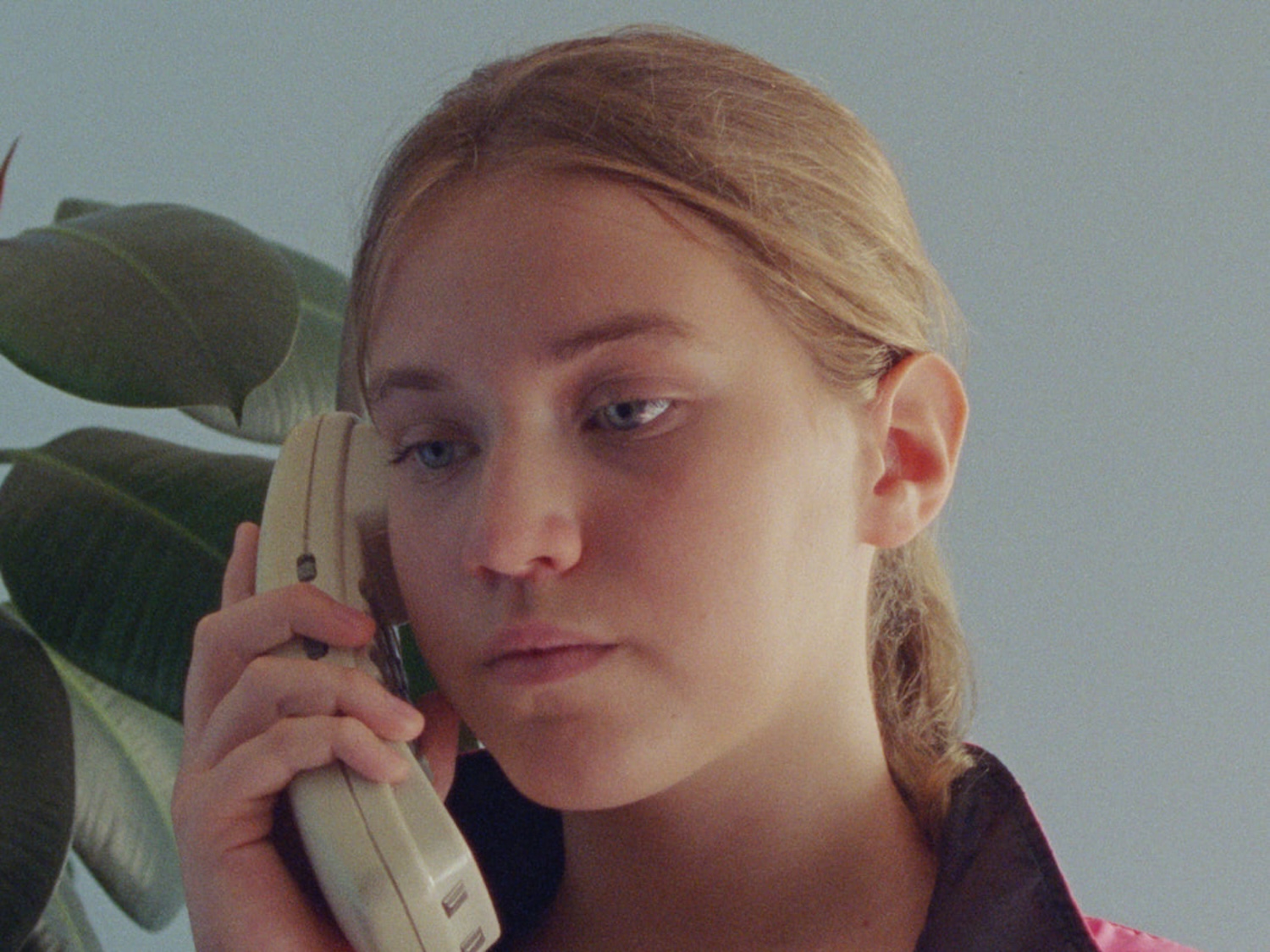
Lana is Stuck in Time
“It happened in a country that no longer exists.”
With these words, Iva Radivojević’s When The Phone Rang (2024) instantly evokes Emir Kusturica’s Underground (1995), his vast allegory for the break-up of Yugoslavia with its famous line: “Once upon a time… there was a country…”
For Radivojević, reflecting on her personal story with a fictionalised narrative, the beginning of the end was 10:36 am on a Friday in Novi Sad, Serbia, in 1992. Lana (Natalija Ilinčić) is at home, watching an adaptation of Carmen (Georges Bizet, 1875) on the TV, when she gets a phone call: her grandfather has passed away. This phone call becomes a trauma, dissociated from time and space, a constant reminder of when everything fell apart.
It constantly repeats throughout the non-linear story, foregoing traditional narrative in favour of an ever-shifting reverie on what it means to leave your home and your nation, to never return to the same place. As Lana’s story is told again and again, we see Lana not as one person but as a metonym for the people of Yugoslavia, and in this case Serbia, characterised by loss, hardship and flight.
Mixing voice-over narration from Slavica Bajčeta with artificial reconstruction, artsy posed takes with musical moments, it appears at first to be a more intimate portrayal of loss than the more classical Good Children. Yet, When the Phone Rang is harder to read, combining its muted performances with a deliberate withdrawal of information to create an even more restrained narrative.
Radivojević wrote, directed, produced, art-directed, cast, composed the music for and edited the film. It’s safe to say her auteurist touch is all over this ambitious and essayistic story, which is shot on Kodak film, uses a 4:3 frame and is unafraid to reach towards the poetic with long takes of a car bounding along the highway or a dissolve between Lana’s face and the ocean. There are times it can feel deeply cinematic, such as the devastating contrast between optimistic pictures and depressing narration. But there are other moments, including a colourful dream, that feel like exercises in image-making for the mere sake of it. An ambitious tale, but an uneven one.
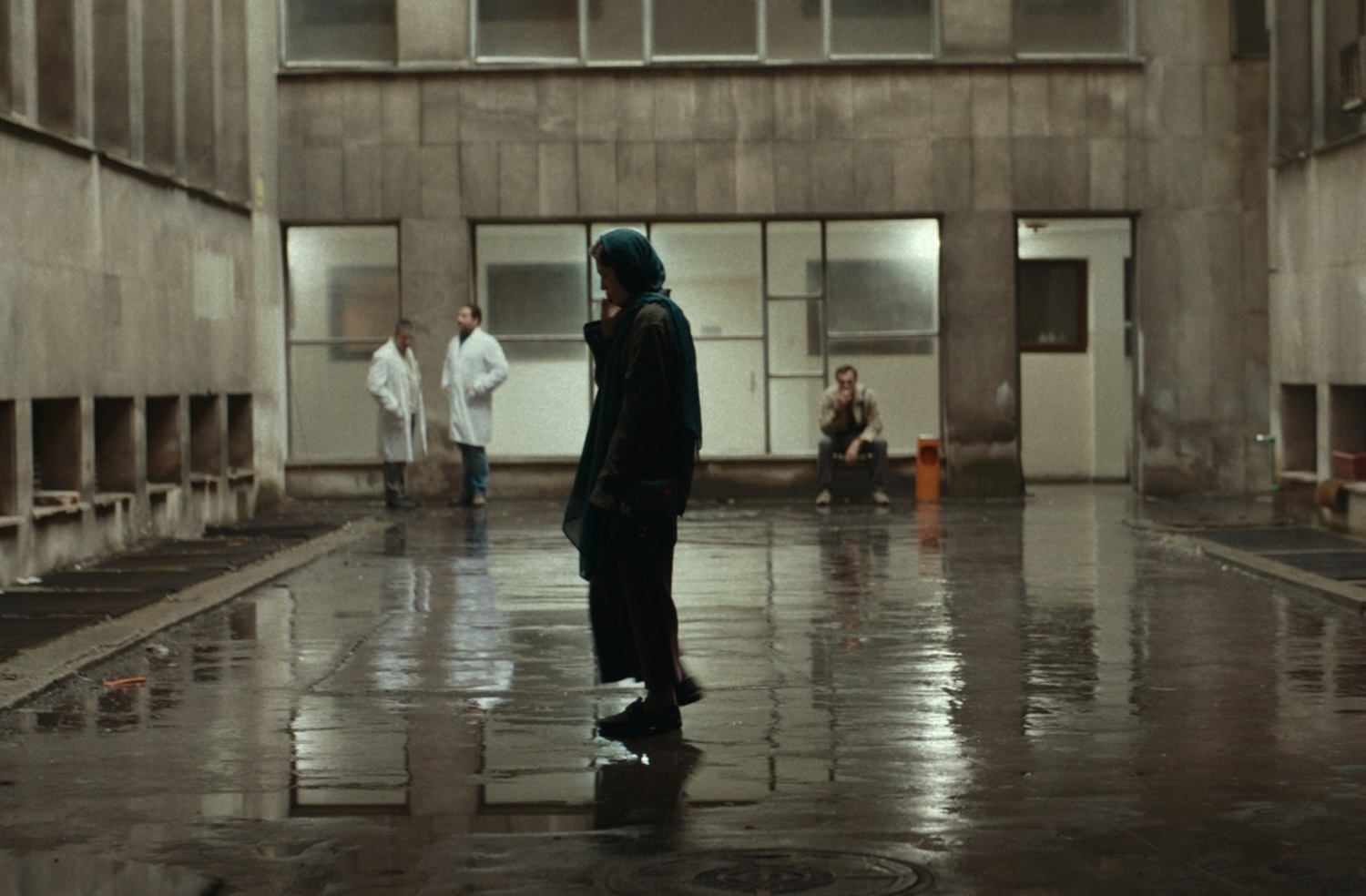
The Slow Death of Bureaucracy
“We don’t have two gods.”
So speaks the Serbian Farsi interpreter Nikola (Nikola Ristanovski) to Afghan refugee Fereshteh (Fereshteh Hosseini) in Dwelling Among the Gods (Vuk Ršumović, 2024), reminding us of the common humanity that binds all people, whether Christian, Muslim, or from any other religion. It comes at a singular moment in the Belgrade-set drama, with Fereshteh and Nikola keenly yet shyly exploring each other’s backgrounds and perspectives.
He explains that while Serbia is now a mostly peaceful country which is open and accepting of refugees, it was once the centre of a war that displaced its own people, many of whom still live in camps among Afghanis fleeing the Taliban. In these moments, Dwelling Among the Gods, based on a true story, adds another nuanced chapter to the 2015 migrant crisis.
But this vital complication of perspective, dissecting Serbia’s role as a waystation for refugees on the way to wealthy western Europe, is a rare spot in an otherwise straightforward drama, depicting Fereshteh’s quixotic quest to bury her recently-deceased brother. He arrived in Belgrade weeks before her and drowned in a river. In scenes of quiet exasperation, caught in a queasy handheld camera, she faces the stone wall of needless bureaucracy: a stern-faced man saying she must find a way to prove her brother’s identity before he will allow him to be buried under his real name.
As she has no papers, she must wait months in a rundown camp miles away from town until her father’s DNA sample arrives from Afghanistan. Hosseini plays Fereshteh with a fierce intensity, significantly contrasting with the subdued and muted performances in Good Children and When The Phone Rang. She even gets a moment of pure, unadulterated rage, a necessary corrective to many refugee depictions — especially of Muslim women — as quiet yet unyielding sufferers. But her story lacks focus, including an unsatisfying subplot involving her daughter and her friendship with another boy in the camp. I got the sense that Dwelling is simply piling one development on top of the other instead of finding a way to corral those conflicts into gripping drama. The sentiment is laudworthy, the execution wanting.
Redmond is the editor-in-chief of Journey Into Cinema.



